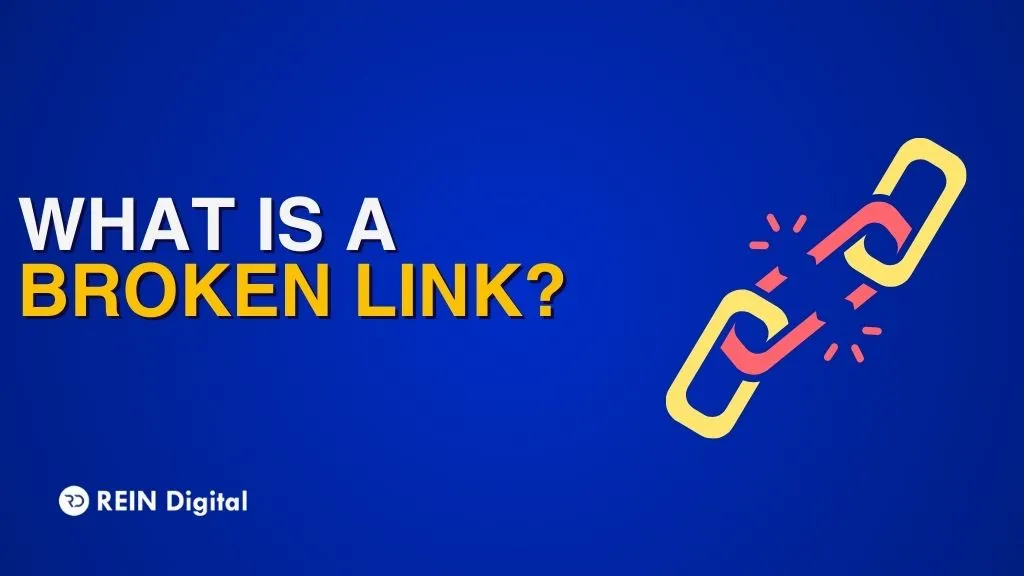
In the dynamic world of SEO, keyword clustering has become a key strategy for improving search engine rankings and attracting more targeted visitors to your site. By grouping related keywords together, you can optimize your content more effectively and enhance your site's overall performance. In this guide, we'll explore how to do keyword clustering and why it helps SEO.
What is Keyword Clustering?
Keyword clustering is the process of grouping similar or related keywords into clusters. These clusters help you create comprehensive content that covers various aspects of a topic, making your website more relevant and valuable to both users and search engines.
How to Do Keyword Clustering?
1. Collect Keywords:
Start by gathering a comprehensive list of keywords relevant to your niche. This is the foundation of your keyword clustering process.
- Use Keyword Research Tools: Tools like Google Keyword Planner, SEMrush, or Ahrefs are essential. These platforms provide data on keyword volume, competition, and trends. For example, Google Keyword Planner can show you that "digital marketing tips" gets 2,900 searches per month, while "SEO strategies" gets 1,600.
- Identify Long-Tail Keywords: Long-tail keywords are detailed, specific phrases that often have less search volume but can lead to higher conversion rates. For instance, "best SEO tools for small businesses" is a long-tail keyword that might not have as much traffic as "SEO tools," but it targets a more specific audience.
- Analyze Competitors: Look at the keywords your competitors are ranking for. Tools like Ahrefs can help you see which keywords are driving traffic to their sites. This can reveal keyword opportunities you might have missed.
2. Analyze Keywords:
Once you have your list of keywords, the next step is to analyze them for patterns and relationships.
- Look for Search Intent: Keywords can be grouped based on the intent behind them. Are users looking for information, ready to make a purchase, or seeking a solution to a problem? For example, "how to do keyword clustering" indicates informational intent, while "buy keyword clustering tool" indicates transactional intent.
- Find Keyword Variations: Identify synonyms and related terms. If your primary keyword is "digital marketing," related keywords might include "online marketing," "internet marketing," and "web marketing."
3. Group Keywords:
Organize your keywords into clusters based on their relationships and search intent.
- Create Clusters: Group similar keywords together. For example, a cluster for "SEO" might include "SEO strategies," "SEO tips," "SEO tools," and "SEO best practices." Each cluster should represent a single topic or theme.
- Use a Keyword Clustering Tool: Tools like SurferSEO or SEMrush's Keyword Magic Tool can automate this process, saving you time and ensuring accuracy. These tools analyze search engine results to see which keywords are often found together, helping you create effective clusters.
4. Create Content:
Use your keyword clusters to develop comprehensive content that addresses all aspects of a topic.
- Content Strategy: Plan your content around your keyword clusters. For example, if you have a cluster for "content marketing," you could write articles like "Content Marketing Tips," "How to Create a Content Marketing Strategy," and "Best Content Marketing Tools."
- Cover All Angles: Ensure your content thoroughly covers the topic. This not only provides value to your readers but also signals to search engines that your content is authoritative and relevant.
5. Optimize with a Keyword Clustering Tool:
Utilize a keyword clustering tool to streamline the process and optimize your content.
- Automate Clustering: Tools like SurferSEO analyze the top-ranking pages for your target keywords and suggest clusters based on that data. This helps you create clusters that align with what search engines are already rewarding.
- Monitor and Adjust: Regularly use these tools to monitor your keyword performance and adjust your clusters as needed. SEO is an ongoing process, and staying on top of keyword trends is crucial.
Why Keyword Clustering Helps SEO?
- Enhanced Relevance: When you cover multiple related keywords within a single piece of content, your page becomes more relevant to a range of related search queries.
Search engines aim to deliver the most relevant results to users. By including a variety of related keywords (like "SEO strategies," "SEO tips," and "search engine optimization techniques") in one article, you signal to search engines that your content comprehensively addresses the topic. This improves your chances of ranking higher in search results because your content matches a broader array of user searches.
- Improved User Experience: Comprehensive content that tackles different facets of a subject keeps users engaged and satisfied.
Users are more likely to stay on your page and find what they need if your content thoroughly covers a topic. If your article answers multiple related questions or provides detailed insights, users will spend more time on your site and are less likely to bounce (leave the page quickly). This lower bounce rate signals to search engines that your content is valuable and relevant, which can positively affect your rankings.
- Efficient Content Creation: Keyword clustering, or grouping related keywords together, allows you to target multiple terms in one piece of content.
Instead of creating separate articles for each keyword, you can write one comprehensive piece that covers all related terms. This approach saves you time and effort since you’re maximizing the value of a single article. For example, if you’re writing about "content marketing," including related keywords like "content strategy," "content creation tips," and "content distribution" in the same article means you’re optimizing for several terms at once.
- Better Internal Linking: Keyword clustering helps you organize and link content more effectively within your site.
When your content covers various related keywords, you can create a logical structure for internal linking. For example, if you have multiple articles on different aspects of "content marketing," you can link them together using relevant anchor text. This internal linking not only helps users navigate your site more easily but also allows search engines to understand the relationship between your pages, which can enhance your overall SEO.
How to Use a Keyword Clustering Tool?
- Input Keywords:
Begin by entering your list of target keywords into a keyword clustering tool.
The tool uses algorithms to analyze how closely related your keywords are based on factors like search intent and common themes. This analysis helps in grouping keywords that are contextually similar or address similar user needs.
- Prepare Your Keywords: Compile a list of keywords you want to target. These could be terms relevant to your industry, product, or content.
- Enter Keywords: Input this list into the clustering tool. Some tools allow bulk uploads or manual entry.
- Tool Analysis: The tool processes the data and identifies clusters of keywords that are semantically related.
- Review Clusters:
Look at the keyword clusters the tool has generated and adjust them if needed.
The suggested clusters might not always perfectly match your content strategy or user intent. Reviewing and refining these clusters ensures they align with what your audience is searching for and your content goals.
- Examine Clusters: Check the clusters suggested by the tool to see if they make sense for your content.
- Adjust Clusters: Modify or merge clusters if some keywords seem out of place or if you see opportunities to create more relevant groupings.
- Align With Goals: Ensure the clusters support your overall content objectives and align with the specific needs of your target audience.
- Create Content Strategy:
Develop a content plan based on the keyword clusters to address all related keywords effectively.
A well-organized content strategy ensures that each cluster of keywords is covered comprehensively, making your content more likely to satisfy user queries and rank well.
- Plan Topics: For each cluster, outline content topics that address the entire group of keywords. For example, a cluster around "SEO tips" might include topics like "On-Page SEO Tips," "Technical SEO Best Practices," and "SEO Tools Overview."
- Develop Outlines: Create detailed outlines for each piece of content, ensuring you cover all the keywords within each cluster.
- Create Content: Write or produce content based on your outlines, integrating the keywords naturally to enhance relevance.
- Monitor and Optimize:
Track how well your content is performing and make adjustments based on its effectiveness.
Search trends and user behavior can change, so it’s crucial to monitor performance and refine your content and keyword clusters accordingly to maintain and improve your search rankings.
- Track Performance: Use analytics tools to monitor metrics like traffic, engagement, and rankings for your content.
- Refine Clusters: Based on performance data, revisit your keyword clusters to identify any shifts in search trends or new opportunities.
- Optimize Content: Update and improve your content based on insights from performance tracking and cluster refinements. This might include adding new keywords, updating outdated information, or improving user experience.
REIN Digital: Master Keyword Clustering for Superior SEO
At REIN Digital, we understand the power of keyword clustering and keyword clustering tools in driving effective SEO strategies. Our expertise in digital marketing ensures that your content is optimized using the latest clustering techniques, enhancing your site’s visibility and relevance. By leveraging advanced tools and strategies, we help you create targeted, high-impact content that not only ranks well but also engages your audience. Discover how our solutions can transform your SEO approach and lead you to success.
Conclusion
Keyword clustering is a vital technique for optimizing your content and enhancing SEO performance. By grouping related keywords into clusters, you can create comprehensive content that addresses various aspects of a topic, making it more relevant to both users and search engines. This approach improves your site's search engine rankings and provides greater value to your audience by covering multiple related queries in one place. Whether you use advanced clustering tools or manual methods, effective keyword clustering ensures that your content is well-optimized, engaging, and aligned with user search intent, ultimately driving better results and higher visibility.














